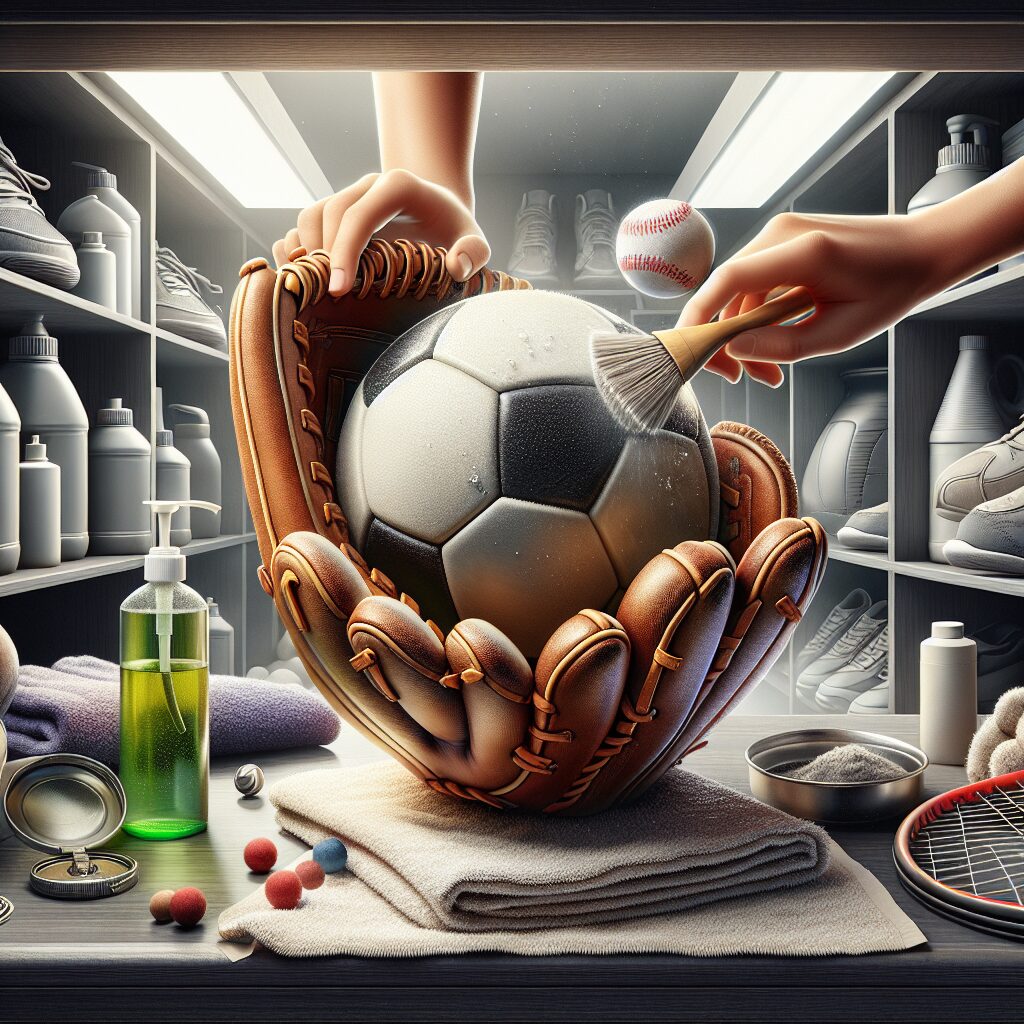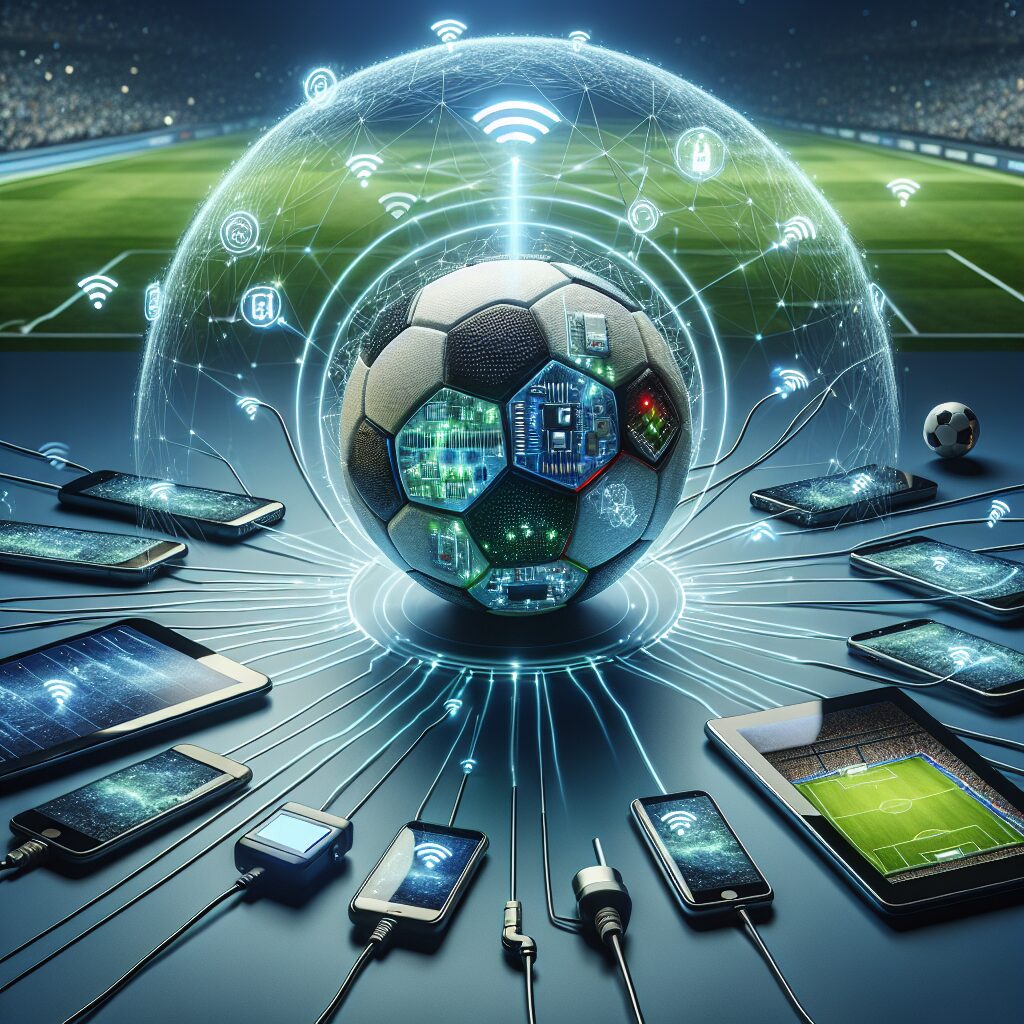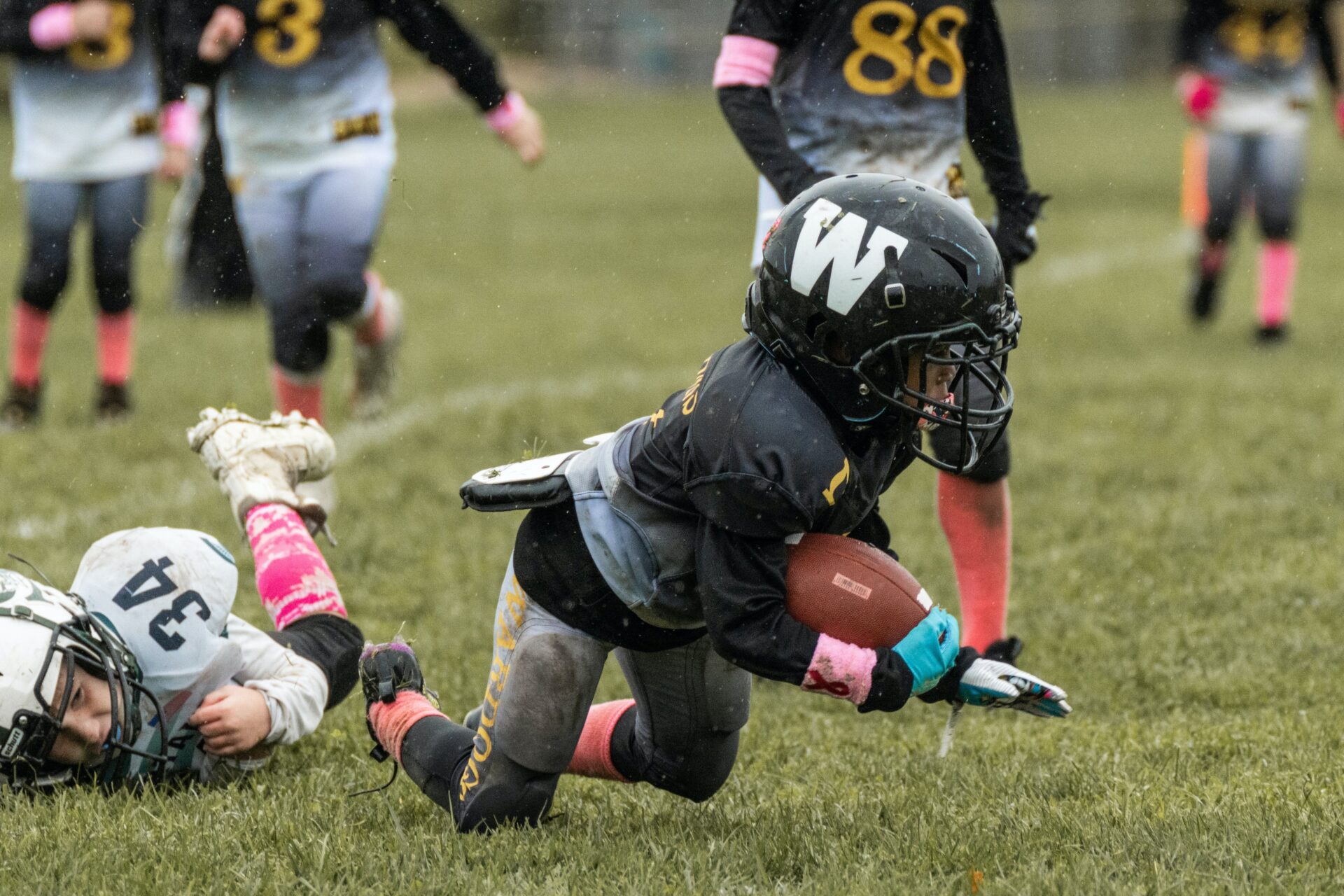Longevity and Ball Care: Extending Your Equipment’s Life
Did you know that the lifespan of sports equipment can be significantly extended with proper care and maintenance? This holds particularly true for one of the most essential components of various sports – the ball. Understanding how to maintain and care for your equipment is crucial not only for improving its performance but also for saving you money in the long run. From soccer to basketball, tennis to golf, the longevity and durability of sports balls play a vital role in the overall quality of play.
So, what are some specific impacts and unique features related to the topic of longevity and ball care? Properly caring for your sports balls can help extend their life, ensuring that they perform at their best for an extended period. Not only does this prevent unnecessary expenses associated with frequent ball replacements, but it also helps maintain the integrity of the game. The way you store, clean, and maintain your balls can have a profound impact on their longevity. In the upcoming part of this article, we will delve into the key takeaways to consider when it comes to extending the life of your sports balls, providing you with valuable insights on how to optimize their performance and durability.
Key Takeaways
1. Regular cleaning and maintenance are crucial for prolonging the life of sports equipment, including balls. This includes removing dirt, debris, and excess moisture after each use.
2. Proper storage is essential to prevent damage and extend the lifespan of balls. Storing them in a cool, dry place away from direct sunlight and extreme temperatures helps maintain their shape and performance.
3. Avoid excessive use on rough or abrasive surfaces to prevent premature wear and tear. Using balls on appropriate surfaces and avoiding harsh impacts can significantly extend their durability.
4. Inflating balls to the recommended pressure and checking regularly for leaks or loss of air ensures optimal performance and reduces the risk of damage during play.
5. In addition to regular care, using protective covers or cases can offer extra protection during transportation and storage, further extending the life of your sports equipment.
How Can You Extend the Life of Your Equipment with Proper Ball Care?
1. Clean Your Balls Regularly
One essential aspect of extending the longevity of your equipment is ensuring proper cleaning of your balls. Over time, dirt, dust, and oil buildup can accumulate on the surface of the ball, affecting its performance. To prevent this, make it a habit to clean your balls regularly using a mild ball cleaner and a soft cloth.
2. Store Your Balls Properly
Proper storage of your balls is crucial in maintaining their lifespan. Avoid leaving them exposed to extreme temperatures, direct sunlight, or high humidity, as these can weaken the ball’s structure. Invest in a quality ball bag or case to protect them from these elements when not in use.
3. Check for Damage
Regularly inspect your balls for any signs of damage. Look for cracks, splits, or chips on the surface and ensure the ball is still perfectly round. If you notice any damage, it’s essential to address it immediately. Small damages can often be repaired, but major ones may require replacing the ball.
4. Rotate Your Balls
Rotating the balls you use during practice or games is a simple yet effective way to extend their life. By evenly distributing the wear and tear, you can avoid excessive stress on a specific ball. This practice helps maintain their shape, balance, and overall performance over a more extended period.
5. Avoid Excessive Force
Excessive force can significantly impact the longevity of your equipment. While it’s important to give your best effort during games, avoid using excessive force when throwing or striking the ball. This can lead to unnecessary strain on the ball’s materials, causing premature wear and damage.
6. Protect Balls During Transportation
When transporting your balls, take extra precautions to protect them. Ensure they are securely packed and cushioned to prevent accidental impacts or excessive jostling that could damage the ball’s structure. Using a padded ball bag or case with compartments can help keep them safe during transportation.
7. Keep Balls Away from Harmful Chemicals
Avoid exposing your balls to harsh chemicals or cleaning agents that can deteriorate their materials. This includes gasoline, solvents, and even some household cleaners. If you need to clean your balls, make sure to use specialized ball cleaners that are safe for use on sports equipment.
8. Store Balls at Optimal Temperature
Proper temperature is essential for maintaining ball integrity. Extreme heat or cold can cause the materials to expand or contract, potentially damaging the ball. It’s best to store your balls at room temperature, away from any extreme weather conditions.
9. Have Spare Balls
Having spare balls is a practical approach to extend the life of your equipment. By rotating your balls and giving them enough time to rest between uses, you prevent excessive wear and tear on a single ball. Additionally, having backups ensures uninterrupted play in case of unexpected damage.
Frequently Asked Questions about Longevity and Ball Care: Extending Your Equipment’s Life
- How often should I clean my balls?
- Can I use regular household cleaners to clean my balls?
- Is it necessary to repair minor damages on the ball?
- What is the optimal temperature for ball storage?
- How can I prevent excessive force while playing?
- Should I invest in a ball bag or case for transportation?
- What should I do if I notice significant damage on my ball?
Frequently Asked Questions
1. Why is it important to extend the life of your equipment?
By extending the life of your equipment, you can save money in the long run. Equipment can be expensive to replace, so taking care of it properly can help you avoid unnecessary costs. Additionally, well-maintained equipment performs better and more reliably, allowing you to maximize your productivity.
2. How often should I clean my equipment?
The frequency of cleaning depends on the type of equipment and its usage. As a general rule, equipment should be cleaned regularly, at least once a month or in accordance with the manufacturer’s guidelines. Regular cleaning helps remove dirt, dust, and debris that can cause damage or affect the performance of your equipment.
3. What are some common maintenance practices to extend equipment life?
Some common maintenance practices include regular cleaning, lubrication of moving parts, inspecting for wear and tear, and following any specific maintenance instructions provided by the manufacturer. It is also important to store your equipment properly in a clean and dry environment to avoid unnecessary damage.
4. Can using the wrong cleaning products damage my equipment?
Yes, using the wrong cleaning products can damage your equipment. It’s important to read and follow the manufacturer’s recommendations regarding cleaning agents and methods. Using harsh chemicals or abrasive materials can cause corrosion, scratching, or other forms of damage to your equipment.
5. Should I replace worn-out parts or repair them?
Whether to replace or repair worn-out parts depends on the severity of the damage and the availability of replacement parts. In some cases, replacing the parts may be more cost-effective and ensure optimal performance. However, for unique or expensive equipment, repair might be a better option. Consult a professional or the manufacturer for guidance.
6. How can I prevent damage to my equipment during transportation?
To prevent damage during transportation, it is important to secure your equipment properly. Use protective packaging materials, such as foam or bubble wrap, to cushion delicate parts. Avoid stacking heavy items on top of equipment and make sure it is securely fastened to prevent movement or shifting during transit.
7. Is regular ball care necessary for equipment longevity?
Yes, regular ball care is necessary for equipment longevity. Balls play a crucial role in many sports and their condition can affect the performance of the equipment. Keep balls clean, properly inflated, and store them in a suitable environment to extend their lifespan and maintain optimal performance.
8. How can I properly store my equipment when not in use?
Proper storage is essential to protect your equipment. Clean the equipment thoroughly before storing to remove any dirt or debris. Store it in a secure and dry location to avoid moisture damage. Consider using covers or cases to provide additional protection against dust, sunlight, and other potential hazards.
9. What can I do to prevent rust on metal equipment?
To prevent rust on metal equipment, it is important to keep it dry and apply protective coatings. Wipe down metal surfaces after use to remove moisture and sweat. Apply a rust-resistant spray or a thin layer of oil to create a barrier against moisture and prevent the formation of rust.
10. Are there any specific instructions for winterizing equipment?
Yes, winterizing equipment is important to protect it from the harsh conditions of cold temperatures and moisture. Drain any fluids from the equipment, such as fuel or water, as freezing temperatures can cause damage. Clean and store the equipment in a dry location, and consider using protective covers if necessary.
Final Thoughts
Longevity and ball care are crucial aspects of maintaining your equipment and maximizing its lifespan. By following proper maintenance practices and taking necessary precautions, you can extend the life of your equipment and ensure its optimal performance. Regular cleaning, proper storage, and minor repairs or replacements can go a long way in safeguarding your investment and saving you from unnecessary expenses. Remember, a well-maintained equipment not only serves you better but also enhances your overall experience and enjoyment.
By treating your equipment with care and respect, you can enjoy it for years to come, whether on the field, court, or any other setting where it plays a role. Embrace the responsibility of maintaining your equipment and it will reward you with reliable performance and long-lasting durability. So, take the time to develop a maintenance routine and make longevity and ball care a priority. Your equipment will thank you.




